Marcus Lapeyrolerie
Pretty darn good control: when are approximate solutions better than approximate models
Aug 25, 2023Abstract:Existing methods for optimal control struggle to deal with the complexity commonly encountered in real-world systems, including dimensionality, process error, model bias and data heterogeneity. Instead of tackling these system complexities directly, researchers have typically sought to simplify models to fit optimal control methods. But when is the optimal solution to an approximate, stylized model better than an approximate solution to a more accurate model? While this question has largely gone unanswered owing to the difficulty of finding even approximate solutions for complex models, recent algorithmic and computational advances in deep reinforcement learning (DRL) might finally allow us to address these questions. DRL methods have to date been applied primarily in the context of games or robotic mechanics, which operate under precisely known rules. Here, we demonstrate the ability for DRL algorithms using deep neural networks to successfully approximate solutions (the "policy function" or control rule) in a non-linear three-variable model for a fishery without knowing or ever attempting to infer a model for the process itself. We find that the reinforcement learning agent discovers an effective simplification of the problem to obtain an interpretable control rule. We show that the policy obtained with DRL is both more profitable and more sustainable than any constant mortality policy -- the standard family of policies considered in fishery management.
Power and accountability in reinforcement learning applications to environmental policy
May 22, 2022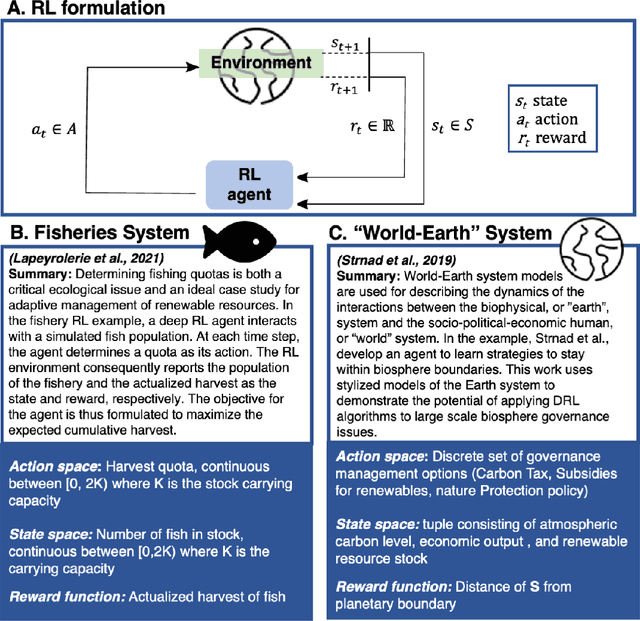

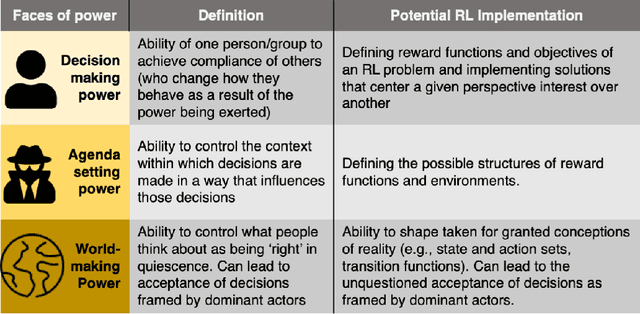
Abstract:Machine learning (ML) methods already permeate environmental decision-making, from processing high-dimensional data on earth systems to monitoring compliance with environmental regulations. Of the ML techniques available to address pressing environmental problems (e.g., climate change, biodiversity loss), Reinforcement Learning (RL) may both hold the greatest promise and present the most pressing perils. This paper explores how RL-driven policy refracts existing power relations in the environmental domain while also creating unique challenges to ensuring equitable and accountable environmental decision processes. We leverage examples from RL applications to climate change mitigation and fisheries management to explore how RL technologies shift the distribution of power between resource users, governing bodies, and private industry.
Deep Reinforcement Learning for Conservation Decisions
Jun 15, 2021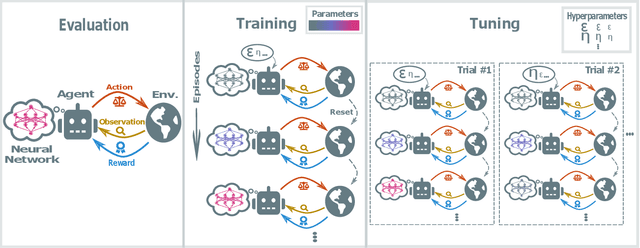
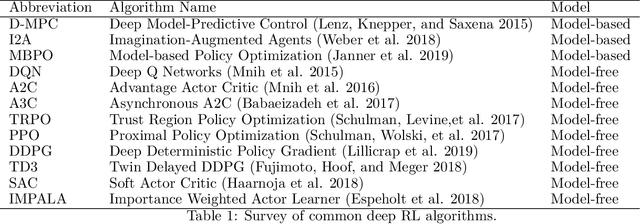
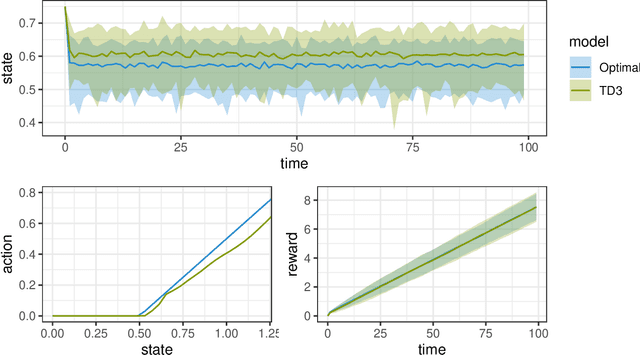
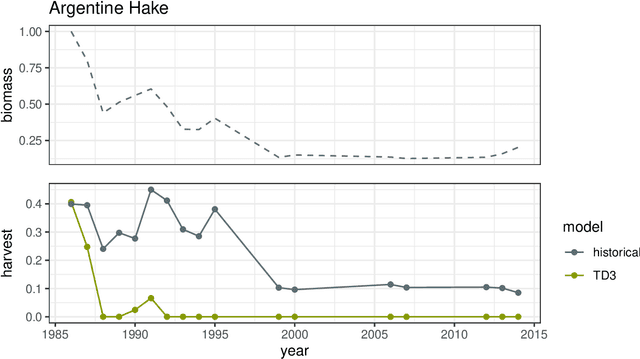
Abstract:Can machine learning help us make better decisions about a changing planet? In this paper, we illustrate and discuss the potential of a promising corner of machine learning known as _reinforcement learning_ (RL) to help tackle the most challenging conservation decision problems. RL is uniquely well suited to conservation and global change challenges for three reasons: (1) RL explicitly focuses on designing an agent who _interacts_ with an environment which is dynamic and uncertain, (2) RL approaches do not require massive amounts of data, (3) RL approaches would utilize rather than replace existing models, simulations, and the knowledge they contain. We provide a conceptual and technical introduction to RL and its relevance to ecological and conservation challenges, including examples of a problem in setting fisheries quotas and in managing ecological tipping points. Four appendices with annotated code provide a tangible introduction to researchers looking to adopt, evaluate, or extend these approaches.
 Add to Chrome
Add to Chrome Add to Firefox
Add to Firefox Add to Edge
Add to Edge